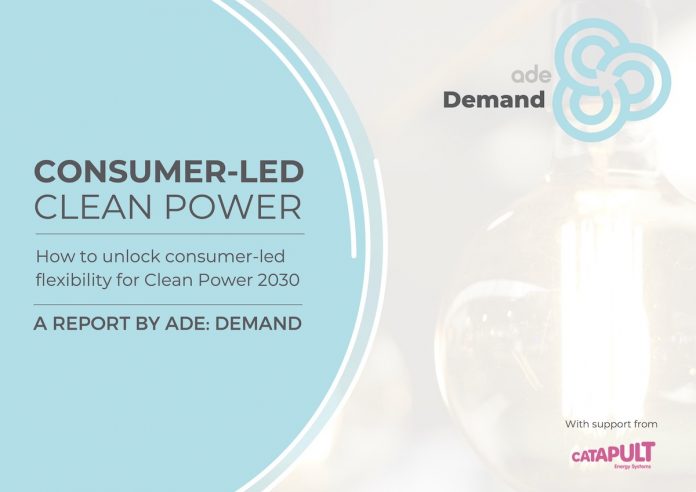The UK risks missing its 2030 clean power target unless households and businesses are empowered to be more flexible about how and when they use electricity, according to a landmark report.
Unlocking just 10GW of consumer-led flexibility is equivalent to a third of the UK’s entire gas-fired power station capacity or 16 gas plants, according to ADE: Demand.
The report, Consumer-Led Clean Power, published today calls for urgent reforms to allow any consumers using heat pumps, solar panels, electric vehicles, factory machinery, or data centres to earn cash for using energy when there is high capacity, or deferring use when renewables output is low.
Sarah Honan, Head of Policy at ADE: Demand said, “The era of treating energy consumers as passive bill-payers is over. To hit clean power targets, we need every home and business to become an active player in our energy system this will release the equivalent energy of 16 gas plants.
“In the 1990s, telecoms reform unleashed competition, driving down costs and sparking innovation. Energy needs the same boldness; secure data highways, automation and regulation that protects consumers while unlocking their potential. Without secure, standardised systems and strong leadership we’ll never achieve the transformation needed to operate a renewables-dominated grid.
“Our Consumer-Led Clean Power report shows how. By 2030, households could save £115 annually – rising to £375 by 2040 – simply by using energy smarter. But to capture these savings, we must act now to ensure everyone benefits, not just the few. Just as mobiles put power in people’s pockets, smart tariffs and AI-driven apps can turn consumers into energy traders. But none of this happens without data standards, urgent levy reform and a watchdog with teeth.”
The Consumer-Led Clean Power report says today’s energy system treats households and businesses as passive bill-payers, but argues that with smart meters, electric vehicles and heat pumps, consumers could be on the cusp of a seismic shift. But it says households must get a fair price for supplying stored power that they generate, and the government must encourage businesses to take part in grid-balancing schemes, by cutting red tape.
The report argues that market rules designed for fossil fuel powered plants are blocking small-scale flexibility; data systems are fragmented; and consumers lack trust. It calls for a Delivery Board, co-chaired by the Department for Energy Security and Net Zero and a ministerially appointed consumer-led flexibility Champion to enforce binding targets and secure open data infrastructure.




